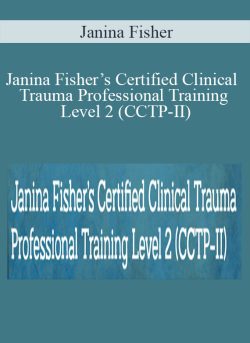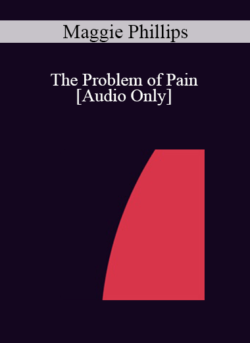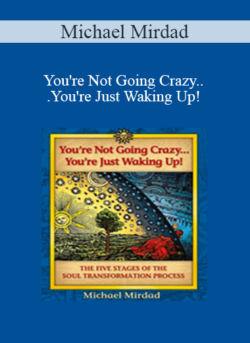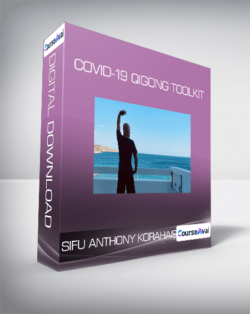Aubrey Schmalle & Nicholas Kardaras – Certification Course in Tech Addiction, Digital Health, and Distracted and Disorganized Kids in a Digital GenerationAverage screen time per child has risen 2.5 hours per day in the last decade — while the rates of ADHD, depression, suicidality, and anxiety also continue to rise.Children have been cooped up indoors with screens for far too long.Buzzing, pinging and gasping for attention… tablets, phones, and video games are interfering with the development and emotional well-being of today’s youth.And young people are throwing fits when their parents take away their screens.We need more professionals prepared to guide this digital generation.Be the expert to guide these struggling families.Register today for instant access to our online course: Certification Course in Tech Addiction, Digital Health, and Distracted and Disorganized Kids in a Digital Generation and become a Certified Digital Health and Wellness Level 1 Professional (CDHWP) within days!Join Nicholas Kardaras, Ph.D., LCSW-R and Aubrey Schmalle, OTR/L, SIPT, in this online course that will present you with the most effective tools, strategies and techniques you need to help children, adolescents, young adults and families hijacked by technology addiction and overuse…In this completely self-paced course, we’ll show you how to help children with ADHD, autism, mental health disorders, and related issues find more opportunities for multi-sensory integration — increasing attention and enhancing brain development!Best of all, completion of this training meets the educational requirements should you choose to apply to become a Certified Digital Health and Wellness Level 1 Professional (CDHWP) through the National Institute for Digital Health and Wellness (NIDHW).Module 1Distracted and Disorganized Kids in a Digital Generation: Techniques to Influence Neuroplasticity, Manage Screen Time & Implement Sensory Smart Movement with Aubrey Schmalle OTR/L, SIPT 4 D’s of a Digital Generation: Distraction, Disorganization, Dysregulation, and Digital DementiaThe speed of digital information verses the speed of neurodevelopmentGrowing impact of technology on learning and behaviorSpecific challenges for children with learning, processing, and attention deficitsRebalance the Brain-Body Connection Role of the senses in self-regulation, perception, and adaptive response patternsSensory Imbalances: Overusing vision in a screen-based worldImpact of weak links in sensory triads on learning and behaviorInfluence physiology to reduce disorganization and dysregulationRebalance through controlled activation of multiple sensesA Powerful New Framework: Body Activated Learning™3 Phase Approach: Optimize, activate, and regroupOptimize connection to the body through energizing or calming movementActivate the brain-body connection using sensory triads and vision exercisesRegroup from screen-based and sedentary learning tasks triggering visual and body fatigueExperiential learningActivate and Digitally Interactive Treatment StrategiesDetermine a child’s digital and sensory-learning profileBuilding Sensational self-awareness to engage and empower learnersProactive activities to support regulation and cognitionEmbedding regrouping opportunities to recover from dysregulation and overloadTechnology as a tool to support the brain-body connectionCase studies, videos, and interactive learningInfluencing Neuroplasticity: Techniques to Balance Technology and Sensory Smart MovementVision, auditory, vestibular, and more considerations for:ADHDAutismDyslexia and dysgraphiaNon-identified but digitally impacted childrenAttacking Digital Dementia and Disorganization from the Inside OutEducate parents and schoolsPlay and learning vs “Done for You” TechnologyVisualization vs videos and PlaystationCreation vs consumption: Interactive learning in a digital ageRemediation vs accommodationContagious Mindsets: Collaborate to Empower a Digital GenerationModule 2Tech Addiction & Digital Health in Children, Adolescents & Young Adults: Level 1 Certification for Clinicians & Educators with Nicholas Kardaras Ph.D., LCSW-R The Origins of Screen Culture The origins of “Indoor Children”Difference between passive TV viewing and immersive/interactive modern screen experiencesNeurological Impacts of Technology Addiction/Overuse The role of dopamine in addictionThe dopaminergic effects of screens on the brainA view of screens as “digital drugs”Brain imaging research and the effects on the frontal cortexHormonal impacts of tech overuseClinical Research: Technology Addiction/Overuse Impact On: Depression and social mediaADHD and screen-timeAnxiety and screen-timeThought disorders and video games as well as “sensory overload”Increased aggression and video gamesLimitations of the research and potential risksAssessments and Observational ToolsAssessment toolsThe difference between “overuse” and “addiction”A comparison with substance addiction assessmentTechnology Addiction/Overuse Intervention Not all tech addiction is the sameSpecific digital usage problem, stressors, triggersUnderlying and co-morbid issuesResidential vs. outpatient treatment: Pros and consHow to implement a “Digital Detox”Importance of nature, meditation and exerciseTechnology in the Classroom: Pedagogical Impacts of Screen Time Research on educational outcomes of classroom technologyPhones in the classroom and standardized test scoresScreens in the classroom and impact on reading and comprehensionComparisons of “Low Tech” schools and one-to-one screen schoolsEd Tech: a $60 billion annual industryThe Los Angeles “iPad Fiasco” and the Amplify initiative by Rupert MurdochWorking with Families and the Family Dynamic Validate that the issues harming families are indeed realAddress dysfunction contributing to the problemFamily psychoeducation”Family Intervention Plan”: The solution needs to be a collective one“Mindful Digital Usage”: How to Reintegrate Back into Healthy Tech Usage Individualized digital “re-entry” plan: Hands-on activityHelp the child to identify healthier “Digital Vegetables” vs. “Digital Candy”Measure progress and what to do if there is a setbackCase Study ReviewLearn interventions and strategies to handle:Mood-dysregulated thirteen-year-old male, DX Intermittent Explosive Disorder (IED)Violent adolescent male, DX ADHD and conduct disorder, video gamer, school refusal, assaults parentsSuicidal adolescent female, DX depression, disordered eating and self-injurious behavior, social media platforms 8-10 hours a dayTwenty-five-year-old graduate student, very politically-interested, stays up all night “hyper-link” surfing, hears voices, paranoidSocial-media obsessed mom, neglects young children, marriage is suffering, children acting outMeet the Course Experts:Aubrey Schmalle OTR/L, SIPTAubrey Schmalle, OTR/L, SIPT, Certified Tomatis Consultant is an occupational therapist providing advanced clinical evaluation and intervention in the area of sensory integration and learning. She graduated from Boston University in 2003 with a bachelor’s in occupational therapy and continued to advance her clinical knowledge through self-study, mentorship, certification in sensory integration theory and practice, certification in the Tomatis method and Tomatis-based auditory interventions.She possesses advanced knowledge in visual-vestibular integration treatment techniques, treatment of postural-ocular and functional visual skill deficits, and intervention to address sensory-motor-perceptual factors contributing to dyslexia and dysgraphia.In 2015, she authored The Body Activated Learning Handbook and continues to develop programming, educational supports, and trainings for educators and related service professionals based on the Body Activated Learning™ approach. She currently presents to educators, therapists, and nurses on the impact of sensory processing on learning and development and helps them optimize classroom and treatment strategies to support a neurologically diverse generation using Body Activated Learning™. Click here for information about Aubrey SchmalleSpeaker Disclosures:Financial: Aubrey Schmalle is the owner of Sensational Achievements, LLC. She receives a speaking honorarium from PESI, Inc.Non-financial: Aubrey Schmalle is a member of the American Occupational Therapy Association; and the Connecticut Occupational Therapy Association.Nicholas Kardaras Ph.D., LCSW-RNicholas Kardaras, Ph.D., LCSW-R, is a best-selling author, internationally renowned speaker and an expert on mental health, addiction, and the impacts of our digital age. He has developed clinical treatment programs all over the country and is the founder and chief clinical officer of Maui Recovery in Hawaii, Omega Recovery in Austin and the Launch House in New York.Dr. Kardaras is a former clinical professor at Stony Brook Medicine where he specialized in teaching the neurophysiology and treatment of addiction. He has also taught neuropsychology at the doctoral-level and has worked closely in developing clinical protocols with Dr. Howard Shaffer, associate professor at Harvard Medical School and the director of their Division of Addiction.Considered a leading expert on young people and digital addiction, he has clinically worked with over 2,000 teens and young adults over the last 18 years and has been active in advocating that screen addiction be recognized as a clinical disorder akin to substance addiction. Dr. Kardaras is also a founding charter member of the not-for-profit National Institute for Digital Health and Wellness (NIDHW), which is an affiliate organization of the National Institute for Science, Law and Public Policy (NISLAPP) in Washington, D.C. Click here for information about Nicholas KardarasSpeaker Disclosures:Financial: Nicholas Kardaras maintains a private practice. He is the CEO/Chief Clinical Officer for Omega Healthcare Group. Dr. Kardaras receives a speaking honorarium from PESI, Inc.Non-financial: Nicholas Kardaras sits as a board member for the National Institute of Digital Health.Sale Page: https://catalog.pesi.com/sales/rh_c_001391_certificationtechaddiction_organic-137845Archive: https://archive.fo/VYdqpDelivery Method– After your purchase, you’ll see a View your orders link which goes to the Downloads page. Here, you can download all the files associated with your order.– Downloads are available once your payment is confirmed, we’ll also send you a download notification email separate from any transaction notification emails you receive from Forimc.me.– Since it is a digital copy, our suggestion is to download and save it to your hard drive. In case the link is broken for any reason, please contact us and we will resend the new download link.– If you cannot find the download link, please don’t worry about that. We will update and notify you as soon as possible at 8:00 AM – 8:00 PM (UTC+8).Thank You For Shopping With Us! Reviews There are no reviews yet.Be the first to review “Aubrey Schmalle & Nicholas Kardaras – Certification Course in Tech Addiction, Digital Health, and Distracted and Disorganized Kids in a Digital Generation” Cancel replyYour rating *Rate…PerfectGoodAverageNot that badVery poorYour review *Name *Email *Δ

 Centreofexcellence – Horse Care & Management Diploma Course
₹10,292.00
Centreofexcellence – Horse Care & Management Diploma Course
₹10,292.00
 Janina Fisher – Janina Fisher’s Certified Clinical Trauma Professional Training Level 2 (CCTP-II): Treatment of Complex Trauma and Dissociative Disorders
₹12,284.00
Janina Fisher – Janina Fisher’s Certified Clinical Trauma Professional Training Level 2 (CCTP-II): Treatment of Complex Trauma and Dissociative Disorders
₹12,284.00
Aubrey Schmalle & Nicholas Kardaras – Certification Course in Tech Addiction, Digital Health, and Distracted and Disorganized Kids in a Digital Generation
₹9,794.00





